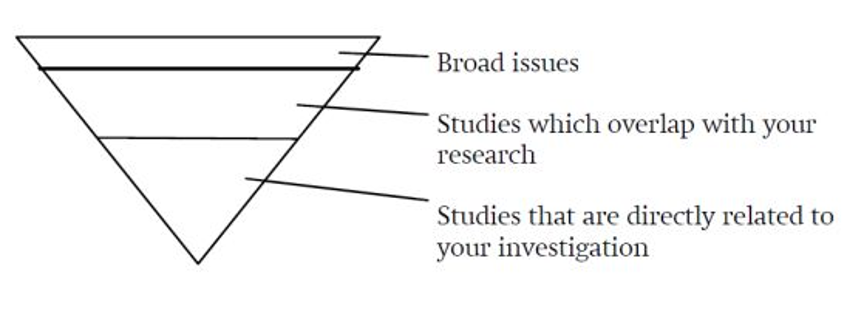Are you planning to write a jurisprudence dissertation to navigate legal philosophies, law schools of thought and other perspectives in this broad field? As a law school student, this is the ultimate chance for you to gain new perspectives on old secular legal philosophies and modern legal thoughts.
The Statista Research Department reveals the list of the United States’ top law schools whose graduates earn the most. According to the statistics, Columbia Law School graduate students had a starting median pay of 146,900 U.S. dollars in the private sector in 2014.

Jurisprudence is the foundation of all legal studies. Looking back at the history and origin of law, jurisprudence or philosophy of law has evolved from ancient Greek civilisation to the 21st century. Jurisprudence is essential and closely correlated with social science. 20th-century American legal professional Roscoe Pound advocates law as a social engineering phenomenon, and it plays a vital role in the social engineering of society.
Working on your dissertation can be overwhelming in this diverse field. Understanding the historical laws, legal philosophy, and philosophical foundation of constitutional law enables you to perform better in legal activities and tasks.
Writing a dissertation also demands a deep comprehension of law and legal reasoning. However, if you are still struggling with minimal ideas for a dissertation and need help deciding topics, get immediate dissertation help from The Academic Papers UK team of experts and academic writers. We also suggest you buy jurisprudence dissertations from them to save time and energy.
Here, we will navigate through challenges and effective methods to construct a remarkable dissertation paper with a step-by-step guide.
Contents
- 1 What is Jurisprudence?
- 2 Structured Guide on Writing Excellent Jurisprudence Dissertations
- 2.1 Step1: Find a Suitable Topic
- 2.2 Step2: Design Research Proposal
- 2.3 Step3: Conduct Literature Review
- 2.4 Step4: Outline Methodological Choices:
- 2.5 Step5: Incorporate Legal Analysis
- 2.6 Step6: Organize Chapters in Order
- 2.7 Step7: Use Legal Writing Style
- 2.8 Step8: Add References in your Dissertation
- 2.9 Ask for Peer Review:
- 3 Wrap It Up:
What is Jurisprudence?
Jurisprudence, in its more straightforward form, is the philosophy of law. Jurisprudence deals with the general analysis of the theory of law and its principles. According to the Legal Information Institute, jurisprudence originated from juris prudentia, which means “the study, knowledge, or science of law.”
In the article composed by Priya Singh and Raju Kamar on What is Jurisprudence: Different Perspectives, they pointed out different scholar’s perspectives on Jurisprudence, such as:
- John Austin, the father of English Jurisprudence, defined it as a “Philosophy of positive laws.”
- Thomas Erskine Holand defined jurisprudence as “The formal science of positive law.”
- Salmond defined jurisprudence as the “Science of the first principles of civil law.”
Jurisprudence and Legal Theories
A dissertation on jurisprudence requires a lot of background studies before diving into it. Having fundamental knowledge of different schools of thought and common legal theory concepts can smooth your jurisprudence dissertation writing process.
The University of Lincoln presented an article on how jurisprudence generally differs from common legal theories, which is briefly discussed here:
Jurisprudence and legal theory are considered interlinked and often used simultaneously. The jurisprudence generally has built a foundation on different schools of thought, including philosophical, analytical, historical, realist and sociological.
- The dominant theory in the philosophical school of thought is natural law. This theory uncovers the relationship between law and morality. St Augustine of Hippo said, “An unjust law is no law at all.”
- The prominent theory in the analytical school of thought is legal positivism. The antithesis of natural law is legal positivism. This theory is devoted to the belief that law does not adhere to ethics and morality; instead, it is a product of the human body, such as the government.
Structured Guide on Writing Excellent Jurisprudence Dissertations
The writing process of a legal dissertation should be immaculate. A remarkably structured dissertation tends to consume more energy and effort.
Wondering how to write a dissertation on jurisprudence? This step-by-step guide is designed to help you develop a maximising impact on your dissertation paper.
Step1: Find a Suitable Topic
The first important step involves choosing your jurisprudence topics. The selection of topics consumes the necessary effort. You can always look up jurisprudence dissertation samples and law study resources to spark your creativity and brainstorming. When choosing a topic, there are a few things to keep in mind:
- Relevance is the key to writing successful dissertations. Always pick a topic which is relevant to the latest legal debates.
- Aim to find unique angles and perspectives on topics. Find the gaps in pre-existing legal studies to make a strong base for your case.
Step2: Design Research Proposal
You must design a successful research proposal to begin working on your dissertation. Your jurisprudence dissertation research proposal should cover all the details, including:
- Point out your legal dissertation paper objectives, research questions and hypothesis.
- Layout the time framework to complete the project
- Demonstrate your understanding of existing legal cases and statutory law to prove your research’s validity and significance.
Step3: Conduct Literature Review
The foundation of any powerful dissertation on jurisprudence is critical analysis. This step is significant because it demonstrates that you have done background research. It also shows the relationship of your dissertation paper with previous research.
- Analyse critical theories and concepts.
- Reveal the gaps and identify patterns in the literature review.
According to the University of Reading, the approach to starting your literature review is to consider it as an inverted triangle:
- Start writing a literature review by briefly explaining the broad issues associated with your dissertation topic.
- Narrow down your focus to deal with the overlapping studies in your research.
- Now, move on to the studies directly related to your dissertation.

Step4: Outline Methodological Choices:
Research methodologies are strategies employed in your research. Dissertations for jurisprudence students can be slightly different. Various research methodologies exist, but jurisprudence dissertation writers commonly engage in:
- Doctrinal Legal Research Methodology
- Comparative Legal Research Methodology
- Empirical Research Methodology
Once you finalise your method:
- Justify your method and explain why this method is suitable for your jurisprudence dissertation topic.
- If any ethical considerations apply to your topic, consider addressing them to avoid complications.
Step5: Incorporate Legal Analysis
This step seeks to provide the reader with in-depth knowledge. Your dissertation should provide meticulous details on legal cases, statutory law and legal principles.
Moreover, compare different legal theories and concepts related to your dissertation for comparative analysis.
Step6: Organize Chapters in Order
This step holds equal importance as writing an entire legal dissertation. Break down your chapters into pieces according to the structure of the dissertation paper.
- Ensure a logical sequence to bring clarity to your reader.
- Typically, Dissertation chapters are organised in a sequence of (Introduction, literature review, methodology, findings, discussion and conclusion)
- Make sure to create a logical linkage between each chapter for cohesive results.
Step7: Use Legal Writing Style
Unlike any other writing style, the legal dissertation writing style is different. It does not permit the writing of any filling words. It is straight, to the point and factual. There is no shortcut to writing a jurisprudence dissertation.
- State the factual information only.
- Explain every single step as your reader is new to this information.
- Don’t use any jargon in legal writing.
- Avoid typos and grammatical mistakes.
Step8: Add References in your Dissertation
Every university has a different referencing system, which can vary from course to course. You should follow the citation methods that your faculty assigns. So far, the Harvard referencing system is commonly used in law courses. A legal dissertation without citation or referencing is of no value.
- Use a wide range of sources to support your argument.
- Make sure to add accurate citations to all sources.
Ask for Peer Review:
Once you finish the cross-checking and are done with editing, you should seek instant supervisor feedback. Getting feedback is one thing, but handling dissertation feedback is another duty. Students should consider feedback constructive and never take it as an attack. Writing a successful dissertation is based on peer review.
Wrap It Up:
The thought of writing a dissertation can spread chills in the body. This article aims explicitly to assist Jurisprudence students in creating impactful legal dissertations. By following the guide mentioned above, you will be on your way to Preparing a top-level jurisprudence dissertation.
Suppose you are keen to make things up to the mark and don’t have enough time to proceed. There are multiple law dissertation writing services available online. The Academic Papers UK provide top-notch services on dissertation writing where you can avail yourself of the opportunity to buy a Jurisprudence dissertation online. They have professional writers on deck to deliver their clients with writing services on law dissertations. We recommend you buy dissertations online from them.

